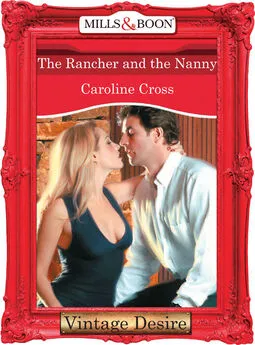John Creasey - The Toff and The Lady
- Название:The Toff and The Lady
- Автор:
- Жанр:
- Издательство:неизвестно
- Год:неизвестен
- ISBN:нет данных
- Рейтинг:
- Избранное:Добавить в избранное
-
Отзывы:
-
Ваша оценка:
John Creasey - The Toff and The Lady краткое содержание
The Toff and The Lady - читать онлайн бесплатно полную версию (весь текст целиком)
Интервал:
Закладка:
CHAPTER TWENTY-ONE
MY LADY’S MEMORY
THERE would be bitter accusations and counter-accusations. Renfrew, Gwendoline, Pomeroy, and Shayle would malign one another and try desperately to escape their rightful punishment. Gwendoline and perhaps Renfrew would be hanged, the others would get long terms of imprisonment.
Pomeroy had been afraid that Gwendoline would betray him, and had instigated the attack on her—that had blinded them all to Gwendoline’s activities. It was known, too, that when Lady Lost did not die, Shayle wanted Phyllis Armitage to find out whether she had really lost her memory. The firms of Pomeroy, Ward & Pomeroy were no longer practising, and the principals and several members of the staff were under arrest.
The solvency of Barrington-Ley was now established beyond question and the run of selling on the Stock Exchange faded out. Barrington-Ley, who had been drugged by Pomeroy, but not seriously, for it would not have suited Pomeroy had he died before his wife, was constantly by Hilda’s bedside. Of her there were encouraging reports, and on the fifth day she was past the crisis.
So Barrington-Ley told Rollison, when he called at the Gresham Terrace flat.
“I’m more than glad,” said Rollison.
“I know you are,” said Barrington-Ley. “But for you”
“I don’t know that I covered myself with glory,” said Rollison. “It’s an old saw but a true one that the truth will out. Farrow, the man Hilda employed to find out what was happening, went a long way towards learning the truth.”
“There are a lot of things I don’t know,” said Barrington-Ley, “but I do know whom to thank. I wish there were a way of avoiding the trials, but”
He stopped, and Rollison knew that he was thinking of Gwendoline. However, there would always be Hilda for
Barrington-Ley; his grief would be softened by her.
The other man smiled, unexpectedly.
“I didn’t come here to be melancholy! Rolly, somewhere in this business a letter from the Countess has been mentioned. I gather that it was supposed to have been written to me. I received business letters from her, but I had never seen her until that night she arrived at the house. That is true, you know, whatever Renfrew said.”
“Of course it is,” said Rollison. “No intrigue by David!”
“But it must have been written to someone,” said Barrington-Ley, reasonably.
“Yes,” said Rollison. “I think she will know. She’s better in everything but her memory, and I shall give her the letter later this evening.” He was smiling, but there was a look in Barrington-Ley’s eyes which suggested he knew the smile was not a reflection of Rollison’s real feelings.
The financier took his leave, and then stopped at the door, by which Jolly was standing, to say that he had employed Phyllis Armitage to nurse Hilda, and that when the nursing home was free from police surveillance, as it would be soon, Phyllis might become the new matron. Then he went off, this man who was always striving to do good, to his wife and with his memories, while Rollison went back into the living-room and Jolly asked:
“Is there anything more you require, sir?”
“What time did the Countess say she was coming back?” asked Rollison.
“At half-past six, sir. It is now a quarter-past.”
“Thanks.” Rollison looked out of the window, frowning, and then said: “We don’t know who sent me that photograph, Jolly. We do know that Renfrew sent the letter in my name, and that one of Malloy’s men was to have killed the Countess on her way here, an attempt which didn’t come off, but the photograph remains a mystery.”
“I think it will be easily solved, sir,” said Jolly.
“By whom?”
“Well, sir, we have evidence that Mrs. Barrington-Ley was seriously perturbed, or she would not have resorted to a private detective agency. The photograph was not necessarily taken in London, since Renfrew lied about that to incriminate Mr. Barrington-Ley further. There seems a possibility that a photograph might be sent from America so that the Countess could be identified—it would be a simple precaution, I’m sure you agree. As Mrs. Barrington-Ley was the chief organizer for this particular Relief Fund in London, she was the most likely recipient of such a photograph.”
“Great Scott!” exclaimed Rollison.
“Exactly, sir,” murmured Jolly. “The love-letter, if you remember, was shown to Mrs. Barrington-Ley by Miss Gwendoline, so Mrs. Barrington-Ley certainly suspected that the Countess was involved with Mr. Barrington-Ley. What would be more natural than for Mrs. Barrington-Ley to send you the photograph?”
Rollison said slowly: “Nothing, Jolly. But why should Gwendoline turn up when she did?”
“Because she discovered what her mother had done, and was anxious to find out whether you were interested, sir. She told you her story, confident that it would mislead you.”
“I think you’re almost certainly right,” said Rollison.
A rather hysterical letter arrived that afternoon from Hilda: she had sent the photograph, she did hope Rollison forgave her; she had suspected David and dared not tell Rollison or anyone the whole truth. There were other things mentioned, and Rollison and Jolly sifted them from the irrelevancies which abounded in the letter. Hilda had employed Farrow and Pomeroy had discovered that without knowing what Hilda wanted Farrow to do. She had liked Pomeroy. He said that it was a splendid idea
“And then saw in Farrow a fine Aunt Sally,” murmured Rollison. “Well, that’s clear now.”
“One thing does puzzle me, sir—the attack on Miss Gwendoline.”
“If the truth does come out,” said Rollison, “I think we shall find that Pomeroy grew alarmed, because she was losing her grip, and he thought her better dead. If we don’t learn the truth, we shall have to assume that.”
Rollison was looking out of the window, and he stepped forward to see more clearly. Jolly stared at him.
The front door bell rang a few seconds afterwards.
“Thank you, Jolly!” said the Lady of Lost Memory, gaily. “Is Mr. Rollison in?”
“Yes, Madam,” said Jolly.
Rollison turned to greet her as she entered. She was wearing a simple dress of stone colour trimmed with maroon red, and a tiny hat of maroon red and shoes to match—for her luggage had been found at Mailoy’s house. It was known now that she had arrived in England a week before the Bal Masque, and that Pomeroy had met her and taken her to Malloy.
Flo Malloy, knowing that her husband and the others planned to murder Lady Lost, had frustrated several attempts. Then she had realized there was no hope while the woman remained at the East End house. Flo had found the dress and the coat, the only garments Malloy had not locked away, and helped her to escape.
But for Flo, the Lady of Lost Memory would not have lived.
When they had discovered her escape, Malloy and Pomeroy had gone post haste to Barrington House, for Lady Lost had known of the Bal Masque that evening. One of them had caught up with her and followed her into the grounds, attacked her and been disturbed by a couple strolling through the shrubbery. She had been knocked out—and, on recovery, had remembered nothing. Attracted by the lights, she had gone into the house.
She knew little of what had been happening since then.
Now her eyes were shining and her cheeks were glowing. She held out her hands to Rollison, who took them and laughed with her, although there was pain in seeing her so happy.
“Memory back?” he demanded. They could joke about it now.
“I keep recalling little things,” she said. “One day it will all come back. It must come back!” she repeated, and sat down on the arm of a chair, her smile fading. “I have been to see Mrs. Barrington-Ley. She is so kind. She wishes me to stay with her, and” —there was a hint of laughter in her voice— “I cannot stay here much longer, or all your friends will think badly of you!”
“Let them think,” said Rollison.
“I shall hate to go,” she said, “but I must, and soon. You understand, don’t you?”
“Of course,” said Rollison. “I have been wrong to let you stay for so long.” He took the folded letter from his pocket, handed it to her, and spoke carefully. “Before you go, read that. It might bring something to your mind. It was found by the police. I read it because”—he paused— “because I had to.”
She took it, obviously puzzled. She unfolded it, saw the opening words, and looked up at him, a new expression in her eyes. It was one almost of fear—perhaps of fearful hope. She began to read, but she had not read more than half the letter before she crushed it in her fingers and jumped up. On her face was a radiance which Rollison had hoped to see, but not because of this.
He made himself speak.
“You remember?”
“I remember! It is coming back, everything is coming back! My husband is in Paris, this letter which I wrote to him was not received. It must have been placed in an envelope sent to London. Where did you find it?”
“It was at Barrington House.”
“But I did not write there,” she said, “I wrote always to Mr. Barrington-Ley at the firm of Pomeroy, in the Strand. How did this get to Barrington House?”
“Pomeroy probably took it there,” said Rollison.
“Of course! Poor Paul, how disappointed he was not to receive my weekly letter!” She was in great spirits, and moved about the room excitedly. “I remember everything! Paul—my home—New York—everything, everything; It is glorious! It is wonderful!” She stopped suddenly, then moved towards him, took his hands in hers and kissed Rollison. He held her very tightly, and only when he felt her stiffen did he release her, afraid that he had given himself away.
But she was suddenly filled with great alarm.
“Mr. Rollison! I remember now, in New York I learned that this man Pomeroy intended to do harm to Mr. Barrington-Ley. A man whom he knew asked for my aid in deception, I refused it; immediately I sailed for London. There was a horrid week in a small house, where I saw Pomeroy. We must warn”
“There’s no need to warn anyone,” said Rollison. “It’s all over.”
“Are you sure?”
“I’m quite sure,” said Rollison.
“I’m so glad,” the Lady of Lost Memory said. Then, after a pause: “Poor Paul! He will be frantic because he has not heard from me for so long. I must telephone him.” She looked towards the telephone, and Rollison, turning so that she could not see his eyes, went to it, lifted the receiver, dialled, and said:
“I want a Continental number, please.”
THE END
Интервал:
Закладка:










